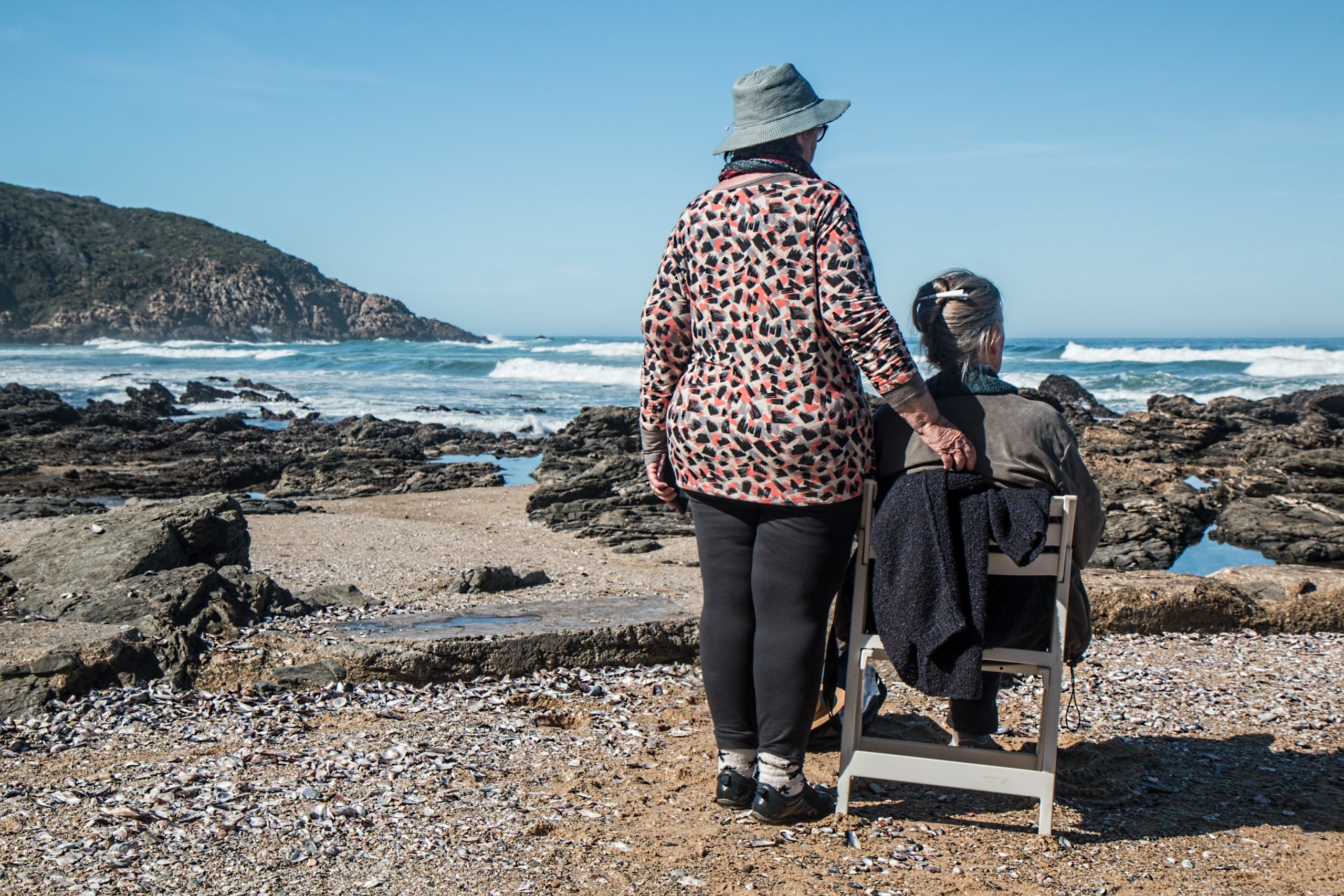
A Caregiver’s Guide to Custodial Care
When your loved one gets older, you never know what type of care they may need. Depending on their preferences, medical conditions, and other factors at home, you can choose from a wide variety of options to best accommodate your elder’s needs. Options range from medical care to non-medical, and to in-home services like custodial care. In-home care is an excellent choice for elders who need help with daily activities, but would still like to maintain a sense of independence. So, what is custodial care?
Custodial care is a non-medical type of elder care that takes place in your loved one’s home. This type of care involves a professional coming to the house regularly to help with daily activities like eating and bathing. Custodial care professionals offer companionship, taking the time to get to know your loved one. Over time, they work together to develop routines that best meet your elder’s needs.
As a family caregiver, you may be hesitant to hire in-home care, but a custodial care professional can put your mind at ease and help you restore balance in your life. Learning more about in-home care options will help you choose the best option for your situation. Below you will find everything you need to know about this service, from custodial care duties to comparisons with other types of care.
Definition of Custodial Care
Custodial care is a non-medical, non-skilled type of in-home elder care that can take place at home or in a nursing home facility. Individuals in this profession help their clients with daily activities like eating, bathing, exercising, and keeping them company throughout the day. This type of care can also include the basic medical care individuals would typically do themselves, like applying ointment or eyedrops.
Whether you’re looking for support with dementia patients or elders who simply need some help around the house, anyone can benefit from custodial care.
Duties
Custodial care workers provide various unskilled, non-medical services for your loved one in their home, or a nursing home. This service is primarily offered to individuals who are not suffering, or in recovery from a specific illness or condition that would require skilled medical care.
Usually, this type of in-home care care is a long-term arrangement. However, you can also contract a custodial care worker to provide short-term respite. This is a great option for family caregivers who need a helping hand. The additional support these professionals can offer may provide the relief you need and help you avoid caregiver burnout. Here are a few of the daily activities your custodial care worker can help with:
- Dressing and undressing
- Preparing and eating meals
- Bathing
- Personal hygiene activities
- Using the restroom
- Walking and exercising
- Companion care (e.g., friendly conversation, playing games, and entertainment)
Some custodial care professionals will offer additional services such as light housekeeping, laundry services, errand running, and taking your loved one to appointments. These professionals may come to your loved one’s house at certain times of the day or even offer 24-hour care services as needed.
Training
Custodial care workers are not required to have a specific skillset, license, or background. However, if they work for a care company, their employer will have ensured they met specific qualifications for the position.
When looking for the perfect fit for your care needs, you’ll want to seek out services or individuals with your preferred background. Arrange interviews to inquire about their experience until you find the best fit for your situation.
Skilled Care vs. Custodial Care
Many people are unsure of the difference between skilled care and custodial care. Learning this distinction will help you choose the right service for your loved one. Both of these services are considered long-term care, but each has a specific set of characteristics.
Here are the differences that set skilled care apart:
- Skilled care is medically required care.
- It is provided by a medical professional or with their supervision.
- Usually more expensive than custodial care.
- Can occur at home or in a nursing facility.
- Some examples of skilled care are physical therapy, wound and catheter care, and administering injections.
- This type of care is more likely to be covered by Medicaid, as it is more likely to be deemed medically necessary.
Custodial Care and Medicare
So, you probably want to know how Medicare works with this type of care.
Unfortunately, custodial care usually is not covered by Medicare. However, Medicaid or Medicare may cover long-term custodial care if it takes place in a skilled nursing facility or a nursing home setting. Medicare favors skilled care administered by a licensed professional for an elder who is involved with Medicare.
If your loved one requires this type of service, it is good to keep in mind that Medicare does not cover stays in nursing facilities that exceed 100 days. Always talk with your provider to determine whether Medicare will cover the type of care your elder requires.
Cost
According to Genworth’s 2019 Cost of Care survey, the national average payment for in-home care professionals is:
- $22.50 per hour
- $141 per day
- $4,290 per month
- $51,480 per year
Custodial care prices will vary depending on the service you use, how often the professional comes to your loved one’s home, and serval other factors.
Let’s take a look at a few of the factors that will determine the cost of your loved one’s in-home care:
- Conditions: Does your loved one have a condition like dementia or a mobility issue? Their specific needs may affect the price of your care service.
- Agency or individual: You can choose to contract a care professional from an agency or hire them directly as an individual. Agencies may have higher prices, but they take care of the legal and administrative aspects of hiring and make sure your professional has been thoroughly vetted.
- Location: Where you live will also impact the price of care. If you live in an area with a higher cost of living, care prices will also likely be higher.
- Type of care: You may choose to hire part-time, full-time, 24-hour care, or even short-term respite care. You may want the professional to come to you or a nursing home facility. These factors will affect the price of the services you contract.
How to pay
While Medicare won’t always help you pay for in-home care, there are still a few resources you can use for financial support with this service. Knowing these resources can make a significant difference in the lives of both elders and family caregivers. Here are a few options to research to see if they will help you pay for custodial care:
- Medicare and Medicaid, as they may offer help under specific circumstances.
- Medicare Advantage
- Veterans programs from the Department of Veterans Affairs
- State programs for seniors other than Medicaid
- Financial benefits such as tax credits and deductions for the elderly that can help free up resources to pay for custodial care
In-home care workers and family caregivers
If you are currently your loved one’s primary caregiver, it may be difficult to leave them with a care professional. Feel free to speak with your new care provider to discuss the best ways to be involved with the care process. You will be able to leave your loved one in the care of this professional, but most professionals will be willing to collaborate and find an arrangement that works best for all parties. Here are a few things to keep in mind to make the most of your relationship with the new caregiver:
- Let your care provider know important information about your loved one. They’ll need to know medical details, routines, favorite activities, and other preferences. You may also want to tell them a bit about your loved one’s life to help break the ice as they get to know each other.
- Develop a plan for care, including your involvement in the process. Come up with a daily schedule to help your care provider acclimate to their new work environment.
- Keep details organized in a folder so the new care provider can easily access important information. They will need to know everything from habits to aversions, and allergies, to emergency phone numbers. Keeping this information readily available will help put everyone’s minds at ease.
Choosing the best care for your loved one
Custodial care is a fantastic option for your loved one if they need help around the house but would like to maintain some level of independence. If you’re a full-time family caregiver, this may be just the type of support you need to restore balance in your life. In-home care professionals offer immense support to help you through each phase of your loved one’s journey. They provide companionship for your loved one, so you can relax knowing they are in good hands.
Sources:
- Nursing home care, The Official U.S. Government Site for Medicare, www.medicare.gov
- Custodial Care vs. Skilled Care, Medicaid Integrity, www.cms.gov
- Custodial Care Facilities, Senior Living, www.seniorliving.org
Related Articles

Elder Law Attorneys: A Comprehensive Guide
If you are someone who is taking care of a senior or has an elderly loved one, you should consider working with an elder law attorney. Though you may not expect it, individuals begin to face new and more complex legal concerns as they get older. Actions that may have seemed trivial when they were […]

When Is It Time for Assisted Living?
Wondering if it is time for assisted living for your loved one is a common question for caregivers. As a caregiver, you might have been considering the question for months or possibly even years. Your loved one might have declined to continue the discussion as the thought of moving out of their family home and […]

Respite Care: An Overview
Caregiving can be overwhelming at times. That’s why taking a break is essential for recharging your battery. Respite care, also called short break care, is a way for caregivers to get temporary care for their loved ones so they can take some time to rest. Getting this “me time” of respite care can renew the […]

A Caregiver’s Guide to ADLs and IADLs
This article has been medically reviewed by Dr. Martin Duggan in 2021. This content is not intended to be a substitute for professional medical advice, diagnosis, or treatment. Always seek the advice of your physician or another qualified health provider with any questions you may have regarding a medical condition. As a family caregiver, your […]

What is a Mechanical Soft Diet? Explanation, Preparation, and Meal Ideas
This article has been medically reviewed by Dr. Martin Duggan in 2021. This content is not intended to be a substitute for professional medical advice, diagnosis, or treatment. Always seek the advice of your physician or another qualified health provider with any questions you may have regarding a medical condition. As a caregiver, you may […]

Intestate Succession—Dying Without a Will
This article has been reviewed by a practicing attorney in 2020 This content is not intended to be a substitute for professional legal advice. Always seek the advice of an attorney or another qualified legal professional with any questions you may have regarding your situation. Death can be an uncomfortable topic. It is one many […]